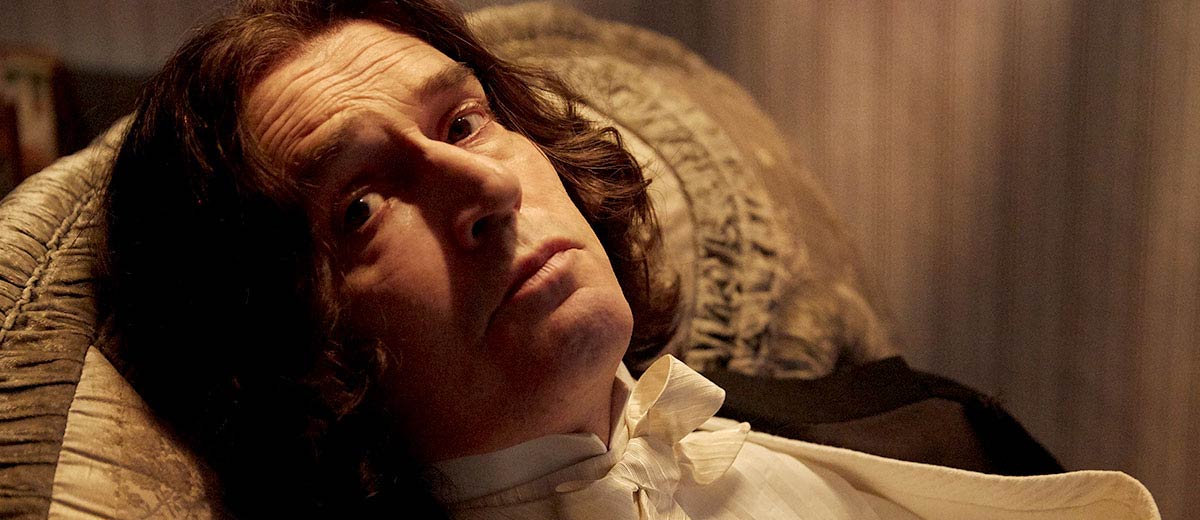PARK CITY – Credit’s due where credit’s due. With “The Happy Prince” first time director and screenwriter Rupert Everett shows cinematic skill in fashioning a period biopic about the last days of Oscar Wilde. The actor’s passion project, which debuted at the 2018 Sundance Film Festival, looks appropriately lush thanks to the efforts of Everett’s crew including cinematographer John Conroy and production designer Brian Morris. Everett has even recruited notable names – and a few former co-stars – such as Colin Firth, Emily Watson and Tom Wilkinson for significant roles. And in front of the camera, Everett gives an impassioned performance as the legendary literary icon. And yet somehow the cumulative effort isn’t as poignant as Everett obviously hoped it would be.
Charlize Theron and Jason Reitman reunite for “Tully” [Sundance Review]
The 58-year-old actor originally starred as Wilde in a 2012 revival of David Hare’s stage production of “The Judas Kiss,” a play that chronicles the impending indecency trial of the Victorian mainstay in 1895 and the reunion with his lover in Naples after he’s spent two years in prison for his “crime.” “The Happy Prince” centers completely on Wilde’s three-year deterioration following his release including that time in Italy (how Hare isn’t given any perfunctory credit considering the subject matter is slightly odd) with the obnoxious but seducing Lord Alfred “Boise” Douglas (an almost unrecognizable Colin Morgan).
For those needing a quick history lesson, Wilde sued Douglas’ father for libel after being publicly accused of being a sodomite (which, in fact, he technically was). Douglas’ father not only countersued but hired investigators to scour the Victorian underworld where he brought enough evidence to not only have this charges against him dropped but for authorities to prosecute Wilde. This monumental life event is referenced in passing as the film is more concerned with Wilde’s initial attempts to get his bearings after two years of incarceration along with specific flashbacks of the most difficult moments of his sentence.
Much of what happened to Wilde during this time is known and some is clearly conjecture. Upon his release, longtime friend Reggie Turner (Firth) and former lover Robbie Ross (Edwin Thomas) put Wilde up in a resort in the French countryside where they believed he’d return to his first love, writing. This vision of Wilde’s thought process during this period has the author attempting to reunite with his estranged wife Constance (Watson) so he can see his two young sons again. Everett clearly believes Wilde’s fondness for his family haunted him enough that he bookends the film with a pre-prison Wilde telling his offspring a bedtime story. As time passes, however, Wilde cannot ignore his true nature even if it means being chased by a homophobic gang, falling for a young Parisian street peddler or running off to Italy with Boise, much to the horror of his true friends, Reggie and Robbie.
Everett’s portrayal of Wilde during these days is a man searching for love wherever he can find it. The memories of his imprisonment still haunt him, however. One flashback centers on a documented moment where Wilde was involved in a prison transfer and was spat on and shouted at by onlookers while in shackles at a train station. He also cannot shake his attraction to Boise even though he’s painfully aware they are more oil and water and that the younger man is partially responsible for his conviction. The seemingly once invincible figure, the toast of the Western literary world has been beaten down and shamed. He can’t write so he mostly drinks all day and night. Even in the first frames of the picture, there is seemingly little hope for Wilde, as Everett alludes to his subject’s fate making much of the journey anticlimactic.
“The Happy Prince” is, of course, a sad tale. A great artist torn down by a conservative society that just thirty years later would be somewhat more tolerant of gay auteurs (at least on parts of the European continent). A man who likely never fully realized the true love that was right in front of him or found peace before his passing. It’s admittedly intriguing in some respects. It’s well crafted and compelling at times thanks mostly to the casts’ efforts, but there is an emptiness that permeates through the film as if a significant piece of Wilde’s demise is missing. And that, regrettably, makes much of the passion Everett has for the subject matter feel unintentionally hollow and the movie simply forgettable. [C+]
Click here for our complete coverage from the 2018 Sundance Film Festival





